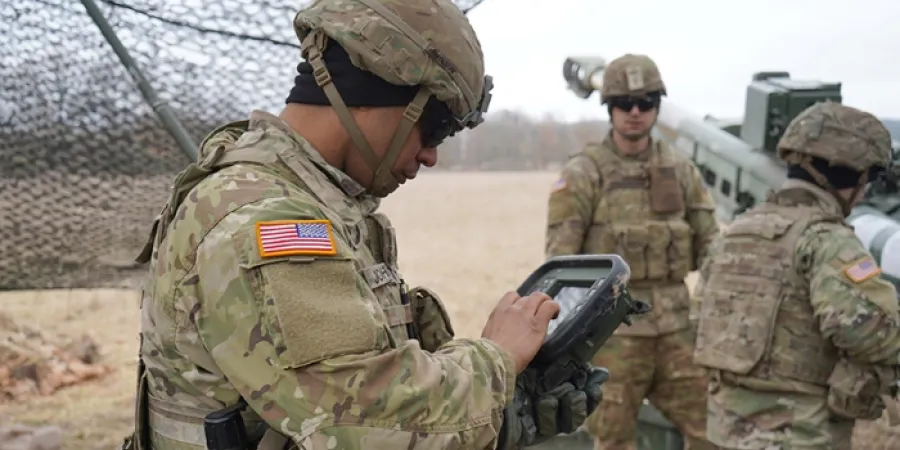BAE to supply US Space Force with military GPS receiver, next-gen semiconductor
The technology is expected to provide positioning, navigation, and timing capabilities to warfighters so they can execute missions in challenging electromagnetic environments
Eyal Boguslavsky
| 21/02/2021
BAE Systems announced last week that it received a $247 million contract from the U.S. Space Force’s Space and Missile Systems Center to design and manufacture an advanced military GPS receiver and next-generation semiconductor. The technology will provide positioning, navigation, and timing capabilities to warfighters so they can execute missions in challenging electromagnetic environments.
According to the company, the Military GPS User Equipment Increment 2 Miniature Serial Interface program will provide improved capabilities for size-constrained and power-constrained military GPS applications, including precision-guided munitions and battery-powered handheld devices. The program will focus on the certification of an advanced application-specific integrated circuit (ASIC) and the development of an ultra-small, low-power GPS module. Both products will work with the next-generation military M-Code signal technology, which provides reliable GPS data with anti-jamming and anti-spoofing capabilities to protect against electronic warfare threats, BAE said.
In its statement, BAE said that its Precision Strike business has 45 years of military GPS experience and more than 1.5 million GPS devices on over 280 platforms around the world. The company is currently producing M-Code GPS receivers in multiple form factors, including the lowest power, smallest form factor M-Code solution available on the market today. Additional prototypes are in development for ground, weapons, and airborne mission applications, and the company’s M-Code GPS products are available to U.S. allies via Foreign Military Sales, said the company.
The technology is expected to provide positioning, navigation, and timing capabilities to warfighters so they can execute missions in challenging electromagnetic environments
BAE Systems announced last week that it received a $247 million contract from the U.S. Space Force’s Space and Missile Systems Center to design and manufacture an advanced military GPS receiver and next-generation semiconductor. The technology will provide positioning, navigation, and timing capabilities to warfighters so they can execute missions in challenging electromagnetic environments.
According to the company, the Military GPS User Equipment Increment 2 Miniature Serial Interface program will provide improved capabilities for size-constrained and power-constrained military GPS applications, including precision-guided munitions and battery-powered handheld devices. The program will focus on the certification of an advanced application-specific integrated circuit (ASIC) and the development of an ultra-small, low-power GPS module. Both products will work with the next-generation military M-Code signal technology, which provides reliable GPS data with anti-jamming and anti-spoofing capabilities to protect against electronic warfare threats, BAE said.
In its statement, BAE said that its Precision Strike business has 45 years of military GPS experience and more than 1.5 million GPS devices on over 280 platforms around the world. The company is currently producing M-Code GPS receivers in multiple form factors, including the lowest power, smallest form factor M-Code solution available on the market today. Additional prototypes are in development for ground, weapons, and airborne mission applications, and the company’s M-Code GPS products are available to U.S. allies via Foreign Military Sales, said the company.



